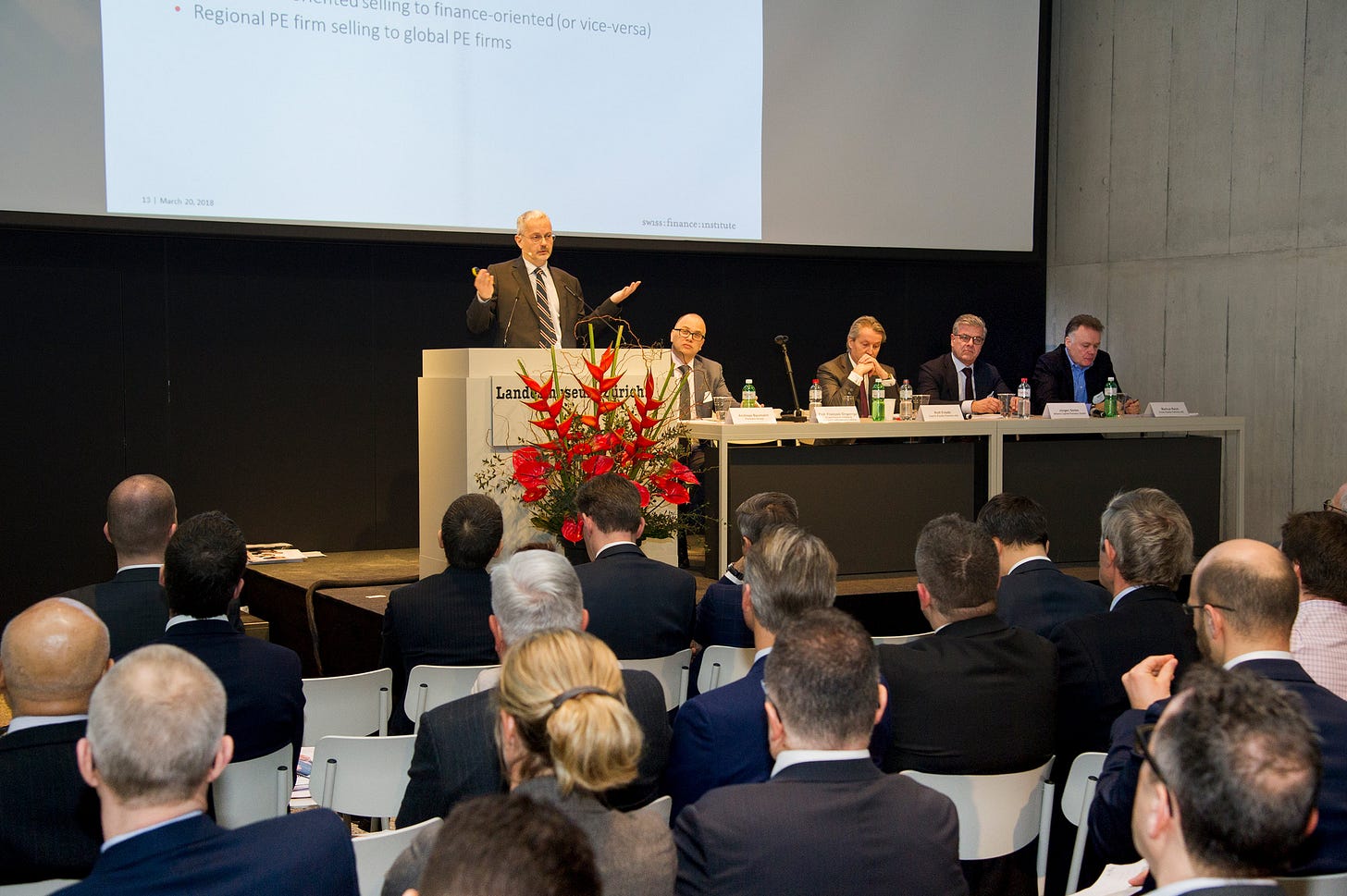🗞 News Roundup: Retail Shareholders are Adapting to Market Volatility and Creating a 'New Normal' of Sophistication
Plus a new study on 'Finfluencers' and why retail shareholders are using Direct Registration System
This week’s Roundtable Roundup takes a closer look at how retail shareholders are adjusting to market volatility in 2023. As rising interest rates puts pressure on global liquidity and regional banks, many retail shareholders are educating themselves on strategies for navigating the downturn suggesting that the investor that once defined the ‘meme stock’ era is rapidly evolving.
This week’s Roundup:
Sophisticated Retail Investors are the ‘New Normal’ (Traders Magazine)
Robinhood CEO talks 24/5 investing, deposits, crypto, M&A, regulation, retail trading (Yahoo!)
Surge in Retail Shareholders Using Direct Registration System: Why and How? (The Street)
Sophisticated Retail Investors are the ‘New Normal’ (Traders Magazine)
Evolution of retail investors: Retail investors are no longer novices but have become increasingly sophisticated, enabled by the democratization of advanced risk management tools, superior education, and the rise of online trading platforms. These platforms offer more leverage through options, which are more intuitive and easily accessible for non-professional traders.
Increased use of sophisticated tools: Sean Feeney, Head of U.S. Options at Nasdaq, notes that retail traders now have access to advanced tools that surpass those he used on the trading floor in 1999, enabling them to perform comprehensive portfolio analyses.
Shift in demographics and interest: The age at which people start trading has significantly decreased, as noted by Ming Zhao, CEO and Founder of Atomic Vaults. There's also a surge in interest in macroeconomic topics such as inflation and the Federal Reserve, especially among younger generations on social media platforms like TikTok.
Adoption of complex trading strategies: Retail traders are becoming more educated and demand the ability to trade spreads, short options, and better analytics. Ravi Jain, Chief Product Officer at Sterling Trading Tech, observes that these traders are upgrading to more sophisticated strategies.
Defensive investment strategies: According to a Q2 2023 survey by Finimize, retail investors have become more savvy and defense-minded, shifting from piling into trendy stocks to diversifying their portfolios with ETFs and broad market tracker funds like the Nasdaq-100 Index (NDX).
Retail Investors' Influence Soars Amid Evolving Financial Advice Landscape and Need for Diversification (World Economic Forum)
Influence of retail investors: Despite market volatility, retail investors have been investing in record numbers in 2023, contributing about 20% of the stock-trading volume in the US. This significant involvement has prompted many companies to rethink strategies to be more accommodating to this investor group.
Evolving financial advice ecosystem: The rise of technology and social media has widened access to financial information and advice, enhancing financial literacy for many. However, this accessibility also carries risks such as misinformation, misleading advice, and inconsistent quality. A survey conducted by the World Economic Forum and BNY Mellon in 2022 found that while nearly 80% of investors consider access to a financial advisor important, less than half of them actually work with one.
Need for broader access to alternative assets: While retail investors typically invest in stocks, bonds, and cash, there's a growing need to expand access to alternative assets like private equity, private debt, real estate, and infrastructure for portfolio diversification. Although historically limited to institutional investors and wealthy individuals, responsible expansion of access to these assets could offer retail investors more diversification options.
Improvement of financial literacy: Current financial education approaches do not resonate well with retail investors. The World Economic Forum and BNY Mellon's 2022 Retail Investor Survey found that over 75% of retail investors would invest more if they had more learning opportunities about investing. Financial literacy skills need to be imparted from a young age, tying basic financial health with more advanced investment and retirement planning.
Study Reveals Majority of Finfluencers Provide Inaccurate Investment Advice on Social Media, Leading to Negative Returns for Retail Investors (Swiss Finance Institute)
A new Study from the Swiss Finance Institute analyzed tweet-level data from over 29,000 finfluencers on StockTwits and assessed the quality of investment advice provided by ‘finfluencers’.
Findings show that 28% of finfluencers offer valuable investment advice leading to positive monthly abnormal returns - these skilled finfluencers generate average monthly abnormal returns of 2.6%.
16% of finfluencers are unskilled, while the majority (56%) are antiskilled -unskilled and antiskilled finfluencers have more followers, activity, and influence on retail trading than skilled finfluencers.
Skilled finfluencers exhibited return-, social sentiment-, and news-contrarian strategies, while antiskilled finfluencers followed return and sentiment momentum.
Following advice from antiskilled finfluencers results in negative monthly abnormal returns of -2.3% - trading against the advice of antiskilled finfluencers yields 1.2% monthly out-of-sample performance.
The study highlights the importance of distinguishing between skilled and antiskilled finfluencers to make informed investment decisions on social media platforms and why issuers should directly engage their retail shareholder communities to create a better overall experience.
Retail Traders Flock to Volatile Regional Bank Stocks for High-Risk, High-Reward Opportunities (Bloomberg)
Volatility attracting retail investors: Turbulence in regional bank stocks is drawing risk-tolerant retail investors seeking rapid profits. The dramatic fluctuations in stocks of regional banks like PacWest Bancorp and Western Alliance are enticing retail traders who experienced losses in the bear market of 2022.
Increase in retail participation: Despite retail participation in the broader market remaining relatively low compared to last summer, indications show it's on the rise, partly due to the downturn in the banking sector. Mentions of financial stocks on the social media site for traders, StockTwits, doubled from the last week of April to the first week of May.
Uncertainty in the regional banking sector: The banking sector is currently unstable, with three regional banks having failed since March, and the threat of further collapses due to unrealized losses on bond investments and customer deposit outflows. Nonetheless, some traders remain hopeful, citing the Federal Deposit Insurance Corp.'s continued support and the Federal Reserve's indications of an end to rate hikes.
Shifting investment strategies: Amid the volatility, retail investors are adopting varying strategies, betting both for and against the sector. Some traders, optimistic about the government's intervention preventing further regional bank failures, are buying call options. Conversely, others are purchasing put options, wagering on further downturns in an effort to recoup previous losses.
Supporting Data: The KBW Regional Banking Index saw a dramatic swing recently, opening with a gain of 1.8% and closing down 2.8%. Net inflows into the SPDR S&P Regional Banking ETF (KRE), which tracks the KBW Regional Banking Index, are down 35% this year despite a 6.3% rally on Friday. The fund's net inflows exceeded $360 million in the first week of May, following inflows exceeding $1.5 billion in March and April combined.
Robinhood CEO talks 24/5 investing, deposits, crypto, M&A, regulation, retail trading (Yahoo!)
Robinhood HOOD 0.00%↑ CEO Vladimir Tenev spoke to Yahoo Finance Live about the company's Q1 earnings and growth despite a decline in active monthly users. Tenev discussed the company's efforts to diversify revenue streams, new product features, cryptocurrency, banking regulations, and upcoming changes for investors.
The company, which went public in 2021 with a valuation of $32 billion, has seen its shares experience volatility due to economic uncertainty and restrictive central bank policies. Despite this, Robinhood has been striving to diversify its revenue streams and recently announced the launch of a 24-hour trading platform operating five days a week.
Tenev shared that the company has been working to adapt to a high-interest rate environment and has introduced new products like Robinhood Retirement, the first IRA with a built-in 1% match, and Robinhood Gold, which offers customers 4.65% APY and up to $2 million in FDIC insurance.
Discussing the company's future plans, Tenev revealed that Robinhood is focusing on attracting the next generation of investors and expanding internationally. He also shared that the company is expecting the 24-hour trading feature to increase volumes and customer satisfaction.
Answering questions about Robinhood's revenue model, Tenev explained that the company makes interest income on assets through products like Robinhood Gold. He also shared that Robinhood is not interested in getting a bank charter as it allows them to offer more flexibility and value to customers.
Despite parting ways with 23% of the staff last year, Tenev shared that the company has launched new products and has been able to move faster with a leaner operating model. He mentioned that the company's strong balance sheet offers opportunities for strategic investment in new product development and potential mergers and acquisitions.
Addressing the issue of regulatory scrutiny, Tenev stated that the company is focused on maintaining good relationships with regulators and ensuring regulatory compliance. He also expressed his satisfaction with the changes put forth by the SEC regarding settlement times and clearance.
Looking ahead, Tenev believes that Robinhood's future as a standalone company is strong, pointing to the impact it has had on the market with its introduction of zero commission trading.
Surge in Retail Shareholders Using Direct Registration System: Why and How? (The Street)
Summary: Retail shareholders are increasingly opting for the Direct Registration System (DRS) to hold their shares. Traditionally, shareholders held their shares through brokerage or bank accounts or physical stock certificates. The DRS, a digital alternative, allows shareholders to hold their shares with the company's transfer agent, offering greater control, convenience, and security. This method is gaining popularity among companies such as GameStop, Dillard's, and AMC, which have seen a significant portion of their shares registered through DRS. A factor motivating this shift is the inability of DRS transfer agents to lend shares to short sellers, potentially leading to a shortage of shares for short selling.
What is the Direct Registration System (DRS)?: DRS is an electronic system where shareholders can hold their shares with the company's transfer agent, instead of brokers or physical stock certificates. The transfer agent maintains an electronic record of shares owned by each shareholder.
Advantages of DRS: DRS offers more control to the shareholder, similar to holding a physical stock certificate, but with the convenience and security of electronic holding. It also provides greater transparency in the transfer process.
Popularity among 'meme stocks': GameStop, Dillard's, and AMC are companies where a significant percentage of shares are being registered through DRS. One of the reasons behind this is the inability of DRS transfer agents to lend shares to short sellers, potentially leading to a shortage of available shares for short selling.
DRS and Share Prices: While there's not much evidence that a high percentage of shares registered through DRS impacts a company's trading performance, retail investors are increasingly using DRS for "self-custody" of their shares, driven by concerns about transparency in the markets.
Current DRS Statistics: GameStop has approximately 76 million shares (25% of total outstanding shares) registered in the DRS. Dillard's has around 3.13 million shares (22% of total outstanding shares) registered, and AMC has 1% of its outstanding shares and 22% of its AMC Preferred Equity units registered through DRS.
Direct Registration illustrates a level of retail engagement that issuers should be encouraging. Stakeholder Labs technology is designed to help issuers provide unique experiences and rewards to loyal shareholders who are taking custody of their shares for the long-term.







